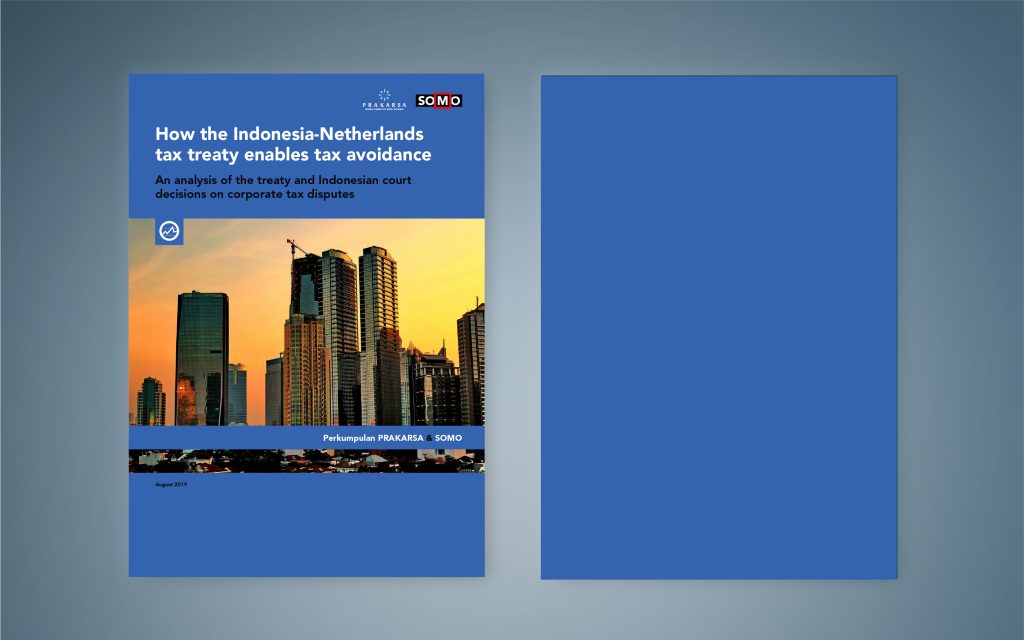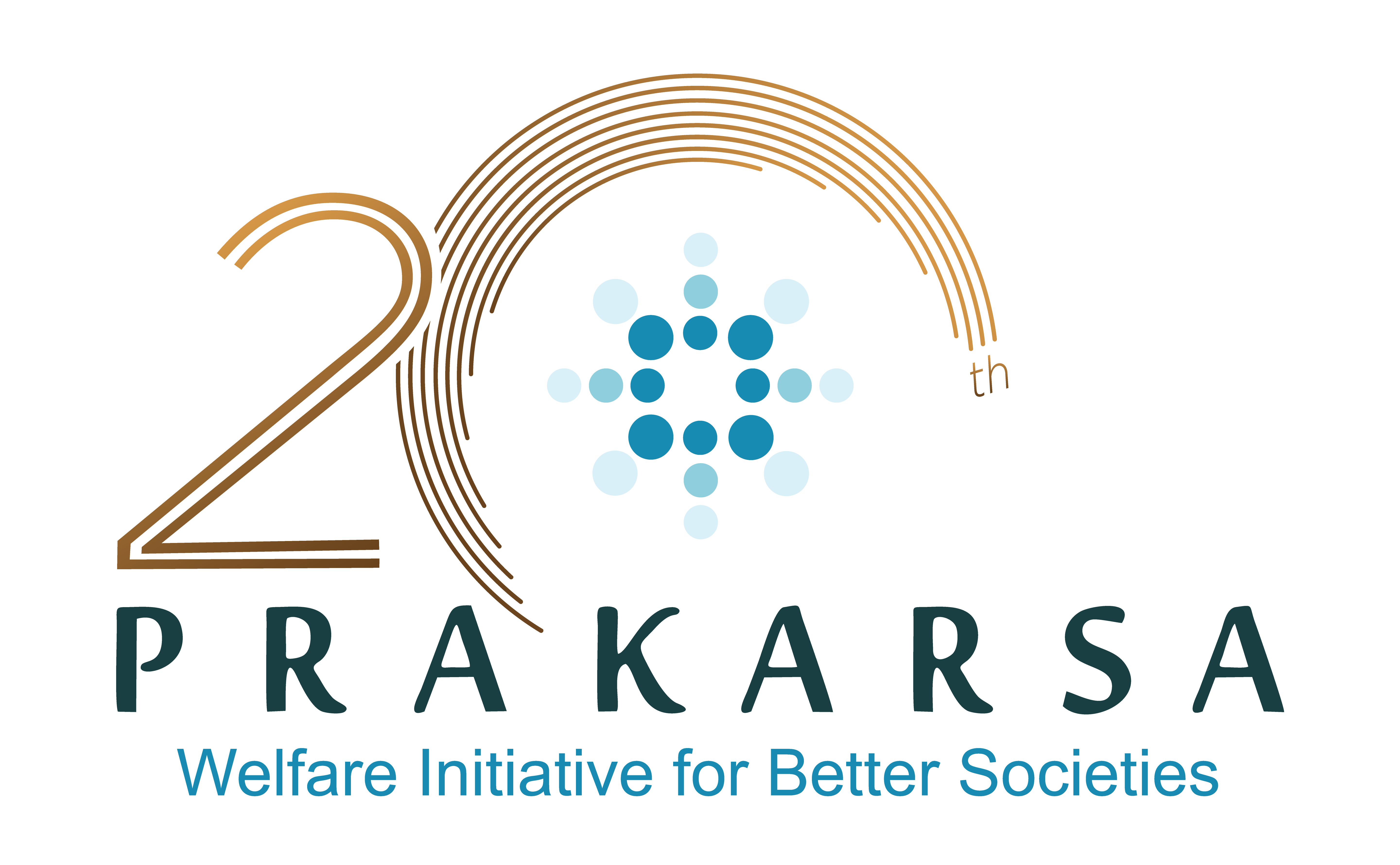
An analysis of the treaty and Indonesian court decisions on tax disputes.
The double tax agreement between Indonesia and the Netherlands is being used, on a wide scale, for tax avoidance practices. More than 75 percent of the foreign direct investment from the Netherlands into Indonesia is structured via letterbox companies, signaling wide scale treaty abuse. The Indonesian tax authority (DGT) has been unable to, unilaterally, put a halt to practices of treaty abuse. This report unravels the weaknesses in the double tax agreement and explains why the Indonesian tax authority has been unable to deny the letterbox companies tax treaty benefits. The Indonesian tax authority has brought a number of tax cases before the Tax and Supreme Court, pleading companies’ illegitimate use of tax treaty benefits. The Indonesian courts however, ruled in favor of the companies in most cases. This report analyses 27 of these cases, filed in the period 2010-2015 by the Indonesian tax authorities.
The most recent tax treaty between the Netherlands and Indonesia came into effect in 2002 and was amended in 2015. The Dutch tax treaty remained, after the 2015 amendments, one of the most favorable tax treaties of Indonesia due the inclusion of very low withholding taxes. Before the 2015 amendments the withholding taxes on dividends and royalties amounted 10% and for interest on specific loans only 0%. This latter withholding tax was raised to 5% with the 2015 amendments, while the withholding tax on dividends was divided between 5% (substantial holdings), 10% (pension funds) and 15% (portfolio). This makes the Dutch tax treaty one of the most favorable of the, in total, 68 tax treaties currently entered into by Indonesia. In comparison, only the withholding taxes on dividend payments (substantial holdings) of the Indonesian tax treaties with Kuwait, Saudi Arabia and the United Arab Emirates are as low as the Dutch tax treaty with Indonesia. Regarding interest payments on loans with a minimum term of two years only the Hong Kong’s tax treaty with Indonesia has an equally low withholding tax. The highly favorable tax treaty benefits make the tax treaty between the Netherlands and Indonesia, in the words of Loyens and Loeff, one of the most attractive and competitive tax treaties entered into by Indonesia.1 This is one of the most important reasons why the Dutch-Indonesian tax treaty has been utilized internationally, on a wide scale, for corporate tax avoidance structures.
The current withholding taxes, especially on interest payments of loans with a minimum term of two years and dividend payments related to substantial holdings, are very low. This is especially remarkable as the Netherlands has promised, as put forward in its circular on Dutch tax treaty policy from 2011, to offer developing countries relatively higher withholding taxes.2 It is therefore highly remarkable that the tax treaty between the Netherlands and Indonesia is one of the most favorable in terms of low withholding tax rates.
Furthermore, the Dutch-Indonesian tax treaty has no anti-abuse measure. This makes it difficult for the Indonesia tax authority to deal with cases of tax treaty abuse. In order to tackle treaty abuse the concept of ‘beneficial ownership’ has been included in the 2002 Dutch-Indonesian tax treaty. The Dutch and the Indonesian government formally agreed in the tax treaty that ‘the competent authorities of the two States shall by mutual agreement settle the mode of application’. This agreement was however never reached. The Indonesian government tried to solve this problem unilaterally by implementing a unilateral definition of beneficial ownership, through a so-called ‘Circular Letter’.3 These unilateral measures were, according to the Indonesian Supreme Court and the Netherlands, to be considered a treaty override. Foreign investors in Indonesia that receive, for example interest, and want to make use of the tax treaty benefits with the Dutch DTA have to show to the Indonesian tax authority that they have fiscal domicile in the Netherlands and that the recipient is the beneficial owner. Whenever these requirements are not fulfilled tax treaty benefits will be denied. The Indonesian interpretation of ‘beneficial ownership’ status in the Netherlands for the analyzed 27 cases, is based upon the Dutch substance requirements that apply to so-called ‘Intermediary Finance Companies’ that were updated in 2004, 2014 and 2018.4 It became apparent, by analyzing the 27 court cases, that letterbox companies could easily fulfil those substance requirements.
This report shows the reasons for the wide scale treaty abuse of the Dutch-Indonesian double tax treaty. It is especially due to the low withholding taxes of the tax treaty as well as the low substance requirements for letterbox companies in the Netherlands that over 75% of the FDI from the Netherlands in Indonesia is structured via letterbox companies. This leads to a substantial loss in tax revenue for the Indonesia society as the Netherlands is one of the biggest investors in Indonesia. It is unclear whether the Dutch or the Indonesian government pressured for the low withholding rates in the tax treaty. Nonetheless, the Dutch government, as a capital exporting country, should offer the Indonesia government more taxation rights, by pleading to increase the withholding tax rates as applicable in the current tax treaty. Especially the low withholding tax of 5% on dividends (substantial holding) and interest5 has to be increased. A second important aspect of treaty abuse are the substance requirements, for example relevant for Dutch holding companies in international structures and Dutch financial services companies. Those substance requirements are rather weak and facilitate the role of the Netherlands as conduit country for international companies. The proposal6 by the Dutch government to require taxpayers that want to obtain a ruling to have an ‘economic nexus’ in the Netherlands, is a small but necessary step forward.
Both the Netherlands and Indonesia have signed the Multilateral Instrument (MLI), though it still has to be ratified by Indonesia. The MLI contains anti-abuse measures that has the potential to limit tax treaty shopping. Through the ratification of the MLI by Indonesia the Principal Purpose Test will become effective. It remains to be seen to what extent this anti-abuse measure will be able to limit the treaty abuse of the tax treaty between the Netherlands and Indonesia. The inclusion of an additional anti-abuse measure, the ‘Simplified Limitation on Benefits’, is strongly recommended. It is however clear, that additional domestic legislation is necessary to challenge the abuse of the Dutch-Indonesian tax treaty, both in the Netherlands and in Indonesia. Indonesia should review all tax treaties with countries that have offshore financial centers and/or high amounts of FDI going into Indonesia, and renegotiate these where necessary. The government must also strengthen the capacity and position of both the tax authority and the tax court.

